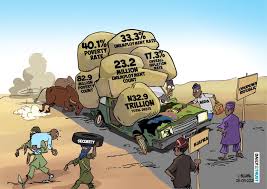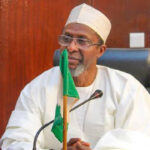The name Chief Emeka Anyaoku is firmly imprinted on the collective psyche of millions of Nigerians and non-Nigerians.
Chief Emeka Eleazar Anyaoku, a former Commonwealth Secretary General, is known to millions of Nigerians, who follow happenings in diverse countries of the world with religious fervour. Before becoming the Secretary General of the Commonwealth of Nations, a position he held between 1990 and 2000, Chief Anyaoku served, though briefly, as Nigeria’s foreign affairs minister in the Second Republic. The admirable traits he possesses and the quality education he acquired made the positions he held a niche for him.
So, there is no doubt that Chief Anyaoku’s lofty achievements have endeared him to Governor Chukwuma Soludo of Anambra State. Governor Soludo holds him in very high esteem. Despite his tight schedule as the governor of Anambra State, Soludo squeezed out time to attend the opening of the “Emeka and Bunmi Anyaoku Museum and Library Foundation Centre”, which coincided with Chief Anyaoku’s 91st birthday celebration on January 18, 2024.
Again, during the triennial Ito Ogbo Obosi Festival, which took place on March 2, 2024, at the Obosi Township Stadium, Governor Soludo expressed his admiration for Chief Anyaoku in this way: “When I grow up, I would like to be like Chief Emeka Anyaoku”. This comment is proof that Chief Anyaoku is his role model.
However, Gov. Soludo is a grown man, who has already charted his way in the world. While Anyaoku rose to the acme of his career, which culminated in his becoming the Secretary General of the Commonwealth of Nations, Gov. Soludo became a Professor of Economics at a young age, and a very cerebral one at that. The common bond that unites them is their great learning as well as expertise in their respective areas of specializations.
More so, both hold the belief that education is a tool for igniting and expediting developmental initiatives in a country. That explains why Gov. Soludo visited some primary and post-primary schools in Anambra State to call their teachers’ attention to the existence of free education policy in the state. And he has always posited that education is an equalizer of opportunities between children of the rich and children of the poor.
Similarly, Chief Emeka Anyaoku is a champion and advocate for equipping young people with qualitative education. It is he who built the “Emeka and Bunmi Anyaoku Museum and Library Foundation Centre” for reviving the dying culture of reading among the Nigerian populace. There is no doubt that his chief reason for building the centre is to refocus the minds of young people on education.
Chief Anyaoku belongs to a generation of eminent Nigerians, whose stars are fast fading and dimming with old age. Members of Chief Anyaoku’s generation have a lofty dream about Nigeria. But their dream that Nigeria would become a united, economically prosperous, and technologically advanced country has been aborted by past successive military rulers and political leaders. Consequently, Nigeria is on autopilot.
During my chat with Chief Anyaoku, he said that our leaders’ inability to manage our country’s diversities is at the root of our national malaise. He is right because no disunited country can achieve technological breakthroughs and economic prosperity. National disunity, we all know, breeds political instability, which is a disincentive to national development.
To say that Nigeria is not a united country is to state an obvious and indisputable fact. But Nigeria, a multi-ethnic and multi-religious country, could be likened to a cat with nine lives as she had suffered political conflicts, a civil war, and ethno-religious problems without disintegrating. While Sudan, Yugoslavia and Czechoslovakia are multi-ethnic countries, which had dismembered, Canada and Switzerland are examples of heterogeneous countries whose leaders had evolved workable democratic models for managing their heterogeneity.
But Nigeria, for all its abundant natural and human resources, is still mired in the morass of national underdevelopment. She is bogged down by infrastructural rot and deficit, technological backwardness, economic stagnation, epileptic electricity supply, comatose healthcare delivery system, and a dysfunctional educational system. No systems of doing things in Nigeria, the so-called giant of Africa, are working efficiently. He said the country’s challenges cannot be addressed under the current constitution.
Nigeria, as of now, is on autopilot. So, it behoves us all to put her on the path of national unity, irreversible economic growth, and sustainable technological advancement.
Chiedu Uche Okoye wrote from Uruowulu-Obosi, Anambra State

 Join Daily Trust WhatsApp Community For Quick Access To News and Happenings Around You.
Join Daily Trust WhatsApp Community For Quick Access To News and Happenings Around You.


